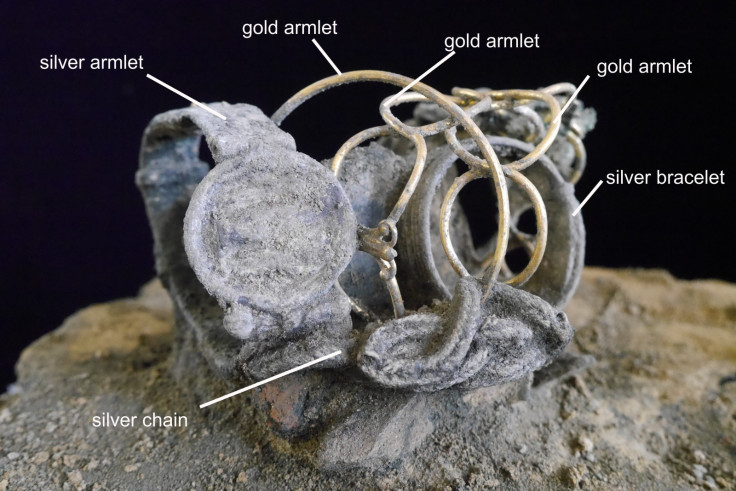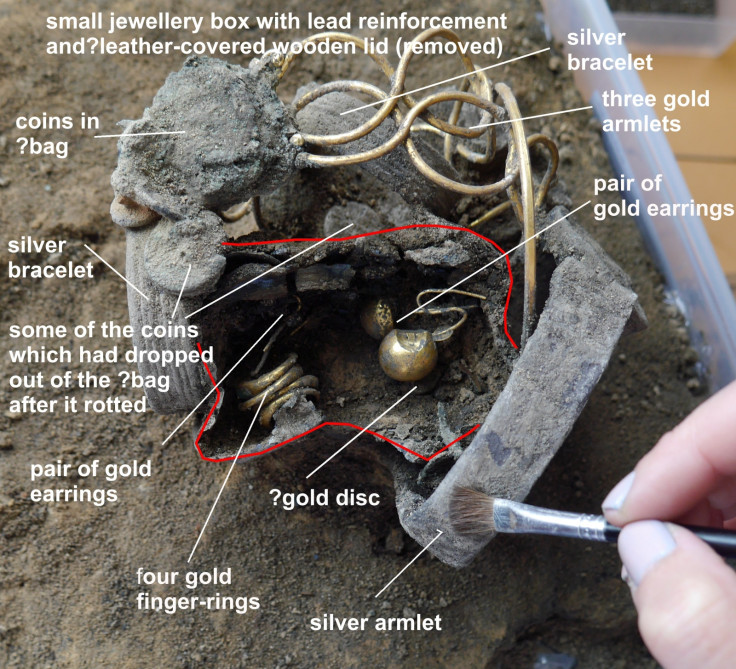Roman Treasure Hidden from Boudicca's Army Discovered in Colchester

A hoard of Roman treasure believed to have been hidden from Boudicca in the first century has been discovered by archaeologists in Colchester.
The collection, including fine gold and silver jewellery, had been buried for safekeeping during the early stages of Boudicca's Revolt, Colchester Archaeological Trust said.
It represents the first hoard of precious metals ever found in Colchester town centre and is thought to have belonged to a wealthy Roman woman, who stashed the treasure under her house when she heard the vengeful queen's armies were approaching.
The archaeologists said the hoard was found under the floor of a house that was later burned to the ground. Burnt food was scattered around and human bones were found lying near the treasure in the debris. Two of the bones showed injuries, suggesting a fight or violent death took place.
In the collection, excavators found three gold armlets, a sliver chain necklace, two silver bracelets, a silver armlet a bag of coins and a jewellery box with two sets of gold earrings and four gold rings.
The team said they expect to uncover even more objects as they continue to dig.
Boudicca was queen of a British Celtic tribe. After her husband's death, instead of her taking over rule of the land, the Roman emperor took over, flogging Boudicca and raping her daughters.

She then launched a revolt against the Romans, destroying Roman towns as they went, killing thousands along the way until she was eventually defeated, with Boudicca either killing herself or dying.
Colchester Archaeological Trust said: "The find is a particularly poignant one because of its historical context. It seems likely that the owner or perhaps one of her slaves buried the jewellery inside her house for safe-keeping during the early stages of the Boudican Revolt, when prospects looked bleak.
"The writings of the ancient historians Tacitus and Dio Cassius record the main course of the revolt. Here we learn that Boudicca and her army destroyed three towns by fire and that the inhabitants of Colchester were not evacuated but suffered a two-day siege before defeat."
The trust said people living in Colchester knew an army was coming and that they were defenceless. The team believes the woman to whom the jewellery belonged may have been brutally killed by the army: "The noblest of the women were taken to sacred groves, mainly of their Goddess of Victory (called Andrate/Andate), where they were killed in a horrific way.
"The quality of the jewellery found at Williams & Griffin suggests that the owner would have been in this category, although there is no direct evidence to indicate that she ended up in a sacred grove."
© Copyright IBTimes 2025. All rights reserved.




















